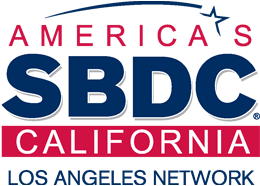January 5, 2012
Is your small business seeking financing for startup or expansion in the New Year? If so, it’s important to know that bank loans aren’t your only option. In fact, with bank loans still very difficult for many businesses to get, I talked to SBDC Business Advisor Ellis Gordon, Jr. to get his insights on alternative financing methods.
What are some situations where small business owners might seek alternative financing instead of a commercial bank loan or an SBA guaranteed loan?
Traditionally, Gordon explains, entrepreneurs seek alternative financing when their companies are in the startup or nascent stage of development with no operating history. “However, one of the enduring effects of the ongoing financial crisis is that credit remains scarce for small businesses due to traditional banks’ strict lending guidelines and aversion to risk,” he says. As a result, he is seeing more businesses in all stages seeking alternative financing because it provides greater flexibility.
What types of financing do Community Development Financial Institutions or other community-based lenders, such as microlenders, provide?
In California, these lenders provide microloans, specialty financing such as RUST (Removing/Replacing Underground Storage Tanks) loans, EDA (Economic Development Administration) loans and California state guaranteed loans. “The types of businesses financed are quite diverse,” says Gordon, “and these lenders offer more flexibility and sensitivity to the borrower’s needs.” Since community financing options differ depending on your industry, your needs and where your business is located, Gordon suggests starting your search for this type of financing by talking to an SBDC Business Advisor.
What are some advantages and disadvantages of obtaining a loan from a credit union compared to a bank?
“Typically, it’s easier to obtain a loan from a credit union,” says Gordon, who notes that since credit unions are member owned, they offer competitive rates and flexible terms.
What should a small business look for in seeking a factoring company?
When considering factoring, in which a factor buys your accounts receivable for a percentage of what they’re worth, then collects on the accounts, Gordon says it’s crucial to look for competitive rates and flexible terms. On the plus side, he says, factoring provides instant cash flow and decisions are based on the creditworthiness of your customers, which can make this type of financing easier to get than traditional loans. On the downside, he notes, this type of financing is relatively high-cost.
What types of companies or situations is purchase order financing best for?
Purchase order (PO) finance companies extend short-term financing to allow businesses to pay suppliers when they have an order in hand. “PO financing works best for small businesses that are in the early stage of development, have not yet achieved profitability and need instant cash flow,” says Gordon. Since PO financing can be costly, he urges seeking competitive rates and flexibility.
What are the risks and benefits of a merchant cash advance?
“A merchant cash advance is the purchase of a portion of a business’s future credit card sales at a discount,” Gordon explains. The benefits include having no collateral at stake, an easy application and collection process, quick access to cash, a high approval rate and revenue-based collections.” Risks include high costs; there are also some unscrupulous providers out there, Gordon warns, so an SBDC Business Advisor can be helpful in making the right choice.
Is it ever a good idea to use credit cards to start or grow a business?
“Credit card financing can be quite expensive and should only be used if there are no other financing alternatives,” says Gordon. “Also make sure that the company is generating sufficient cash flow to service any credit card financing.”
With any method of financing, what should an entrepreneur consider when deciding if the financing is worth the cost to them?
Weigh your business’s ability to service the financing acquired, as well as the benefits you’ll get from the financing, Gordon advises. “If the financing allows the entrepreneur to increase revenues and the enterprise’s bottom line, then it is a good match.”
Rieva Lesonsky is founder and President of GrowBiz Media, a media company that helps entrepreneurs start and grow their businesses. Before launching her business, she was Editorial Director of Entrepreneur Magazine. Follow Rieva at Twitter.com/Rieva, read her blog at SmallBizDaily.com, and visit her website SmallBizTrendCast.com to get the scoop on business trends and sign up for free TrendCast reports.






